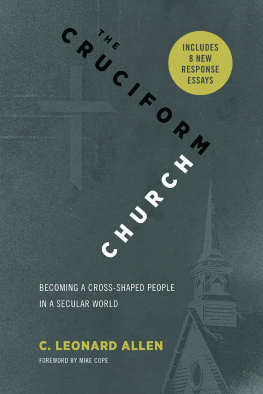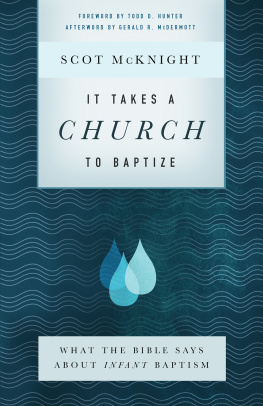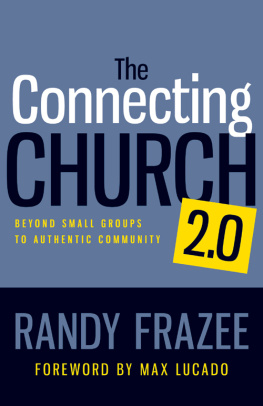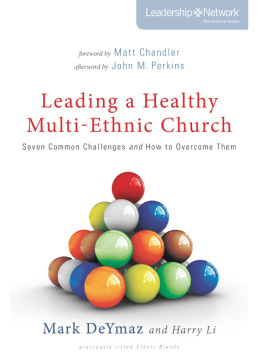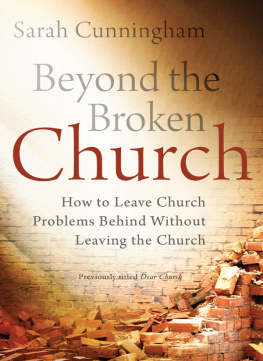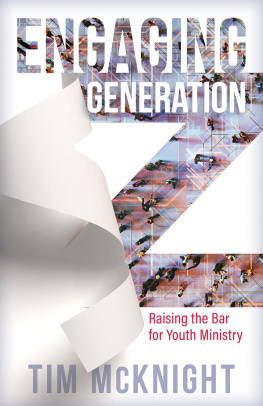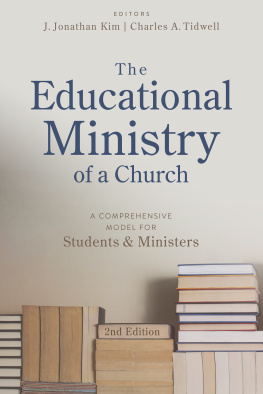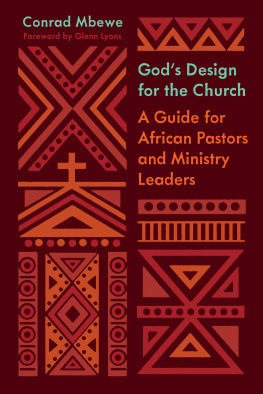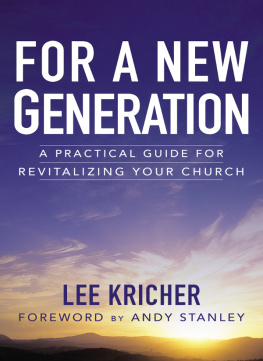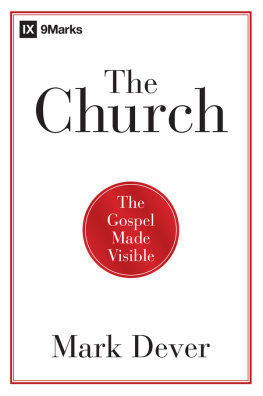As several of the chapter respondents have observed, Churches of Christ find themselvesat a different place than they were twenty-five years ago when the book was firstreleased. Some congregations are engaging more and more in the kind of theologicalrethinking that this book called for back in 1990. A good many congregations areshedding the exclusivist outlook, gaining new awareness of and appreciation for theirheritage, refocusing on the central doctrines of the faith, and entering into newdialogue about carrying out the mission of God in this new time.
Several of the respondents describe the changes they have observed. John Mark Hickssees that over the last twenty-five years Churches of Christ have engaged in a freshreading of scripture and points to three significant ways: 1) reading scripture throughthe lens of the Great Tradition (e.g., the Apostles Creed and other early ecumenicalfaith statements); 2) reading scripture as a grand, overarching narrative ratherthan as abstracted propositions; and 3) reading scripture as a living text empoweredby the Holy Spirit. Scot McKnight, who is an outside but close observer of Churches of Christ, said, Ive noticed that they are not quite as trapped into New Testamentonly thinking; they are more immersed in the whole Bible... and have been thoroughlysoaked in the Gospels. Lee Camp says that many Churches of Christ appear to havemoved beyond the stringent legalisms of days now passed and are asking the question,How may we embody the alternative vision of church depicted herein in light of thegrave challenges facing our world today? And Richard Beck thinks that Churches ofChrist have become a more compassionate people, a people seeking to embody the cruciformvirtues.
Despite these positive changes, Randy Harris declares his belief that The CruciformChurch remains more relevant than ever. Why? Because there are... more churchesthan ever who are selling their souls to nationalism, bibliolatry, power, and otherforms of idolatry.
So here, twenty-five years later, let me describe what I see now and how my own theologicaljourney has continued.
Its just beginning to hit us that we are living in a post-Christendom cultureacultural situation more like the Christians of the first three centuries, beforethe emergence of Christendom. The cultural status and power that Christianity inAmerica held from about the 1850s to the 1960s is virtually gone. In Christendom,the church occupies a central and influential place in society; after Christendom,it gets pushed to the margins, out of the place of power. And thats where we findourselves nowmore and more at the margins.
Our ways of being Christian in the West have been deeply shaped by cultural establishment.For many centuries the church occupied a dominant place in Western cultureit wasestablished by law. And then in the United States, where church and state were separated,there was a powerful but unofficial Christian establishmenta cultural establishment.
Lets be clear: Any sort of Christian establishment has definitively ended. As DavidBentley Hart put it, we now live in the time after Christendom, among the rapidlyvanishing fragments of its material culture, bound to it by only a few lingeringhabits of thought.
Now our context is radically pluralistic and secular. Today all the Christian playershave been disestablished, that is, have lost their cultural places of honor and powerand must function as cultural outsiders.
The good news is that, over its long history, Christian faith has remained vitalindeed,often flourishedwhen it occupied the margins. Early Christianity did not come intoexistence in the midst of public favor. And it did not grow because it was popularand easily accepted.
During the first three centuries or so, Christians mostly met in small house churchessurrounded by neighbors who frequently scorned their beliefs and their morality.Yet Christianity flourished and spread rapidly throughout the world.
Heres the key point: Christianitys loss of cultural power in America is wakingus up to the reality that we are in a missionary situation in our own culture. Andthis is forcing us to rethink our mission, our priorities, and how we do church.We are missionaries now. We may have had congregations that supported missions.But now we face the challenge of becoming missionary faith communities.
Such a time calls for further theological recoveries and engagements. One recoveryis a more robust and biblical eschatology. Robust discipleship is grounded in theNew Testaments bold eschatological claim that Gods reign has already broken intohistory in the power of the Spirit. It was this claim that enabled the early Christiansto stand strong and flourish in the midst of hostile pagan religion and state persecution.So in a 2006 edition of The Cruciform Church I added the chapter on eschatology.
A new and challenging engagement is the explosion of Christianity in the Global South.This represents nothing less than a revolutionary shift in Christianitys centerof gravity. The new center is South America, Africa, and the Pacific Rim. Since 1950or so, Christianity has been expanding at breakneck speed in these regions.
Its clear. The West is becoming increasingly post-Christian, and Christianity isbecoming increasingly post-Western. And it seems almost certain that these trendswill continue.
This explosion of new Christian movements is as diverse as the range of culturesthey are rooted in; and they are messy, often chaotic. To many Western observersthey are controversial and offensive because they are, well, so non-Western. Jenkinsnotes that amid the great diversity of churches in the Global South one of the mostvisible common features is the critical idea that God intervenes directly in everydaylife.
Lets be honestthis all gives us varying degrees of discomfort. We all have ourcomfort zones and our own theological turf that weve staked out for ourselves overa lifetime. We have our own range of what church and worship should look and feellike. And weve had a pretty good idea of what God can and cannot do.
So what do we do with this vast cultural and Christian diversity? Let me describebriefly how Im learning to think about it.
Its clear to me that all expressions of Christian faith are culturally rooted. Deeplyso. Wherever we are, we come into the faith conditioned by a particular time, place,family, tribe, and culture. And not just conditionedembedded. There doesnt appearto be any other way. Its something of a scandal, actually. Lets call it the scandalof the gospelor better, the scandal of the incarnation, the Word made flesh.
Christianity is founded in the incarnation of Christ. Andrew Walls, a Scottish theologianwho pioneered the study of global Christianity in the late twentieth century, usedthe metaphor of translation to speak of what happened in the incarnation. In theChristian story, he said, Christ was not simply a loanword adopted into the vocabularyof humanity; he was fully translated, taken into the functional system of the language,into the fullest reaches of personality, experience, and social relationship. Andwhen people from any tribe, nation, and tongue encounter this Christ and experienceconversion, they begin to experience the deep opening up of their personalities,intellects, and emotions to this new reality. And as Christianity spreads from cultureto culture it keeps getting translated. This cross-cultural translation becomesa kind of mirror of the incarnation itself.
In this process of enculturation there is a deep particularity but at the same timea universality that may surprise us. On the one hand, there is what Walls calls theindigenous principle: the drive to make the church a place that feels like home.That is, God receives people as they arein every tribe, nation, and language. Buton the other hand, there is an opposing push, a steady sense that Christians haveno abiding city. Walls calls this the pilgrim principle. God wants to transformbelievers into something new and more faithful. He wants to turn all of us into citizensof a new kingdom and not simply leave us comfortably at home in our own place.

